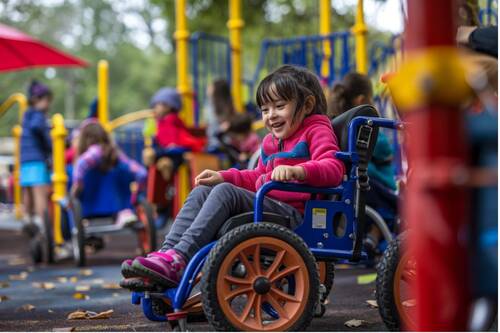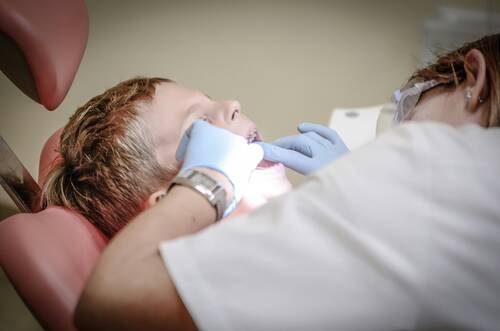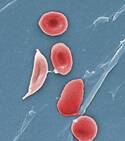NYU Study Finds No Link Between Maternal Illness and Autism
UCSD Study Finds Secondhand Cannabis Smoke A Significant Risk for Children
How Pediatric Care Shapes The Future Of Disability Support
 Pediatric care plays an essential role in helping children grow and develop, especially those living with disabilities. Through early support, medical care, and learning resources, pediatric care improves children’s outcomes and builds a foundation for a more inclusive society. Understanding how pediatric care shapes disability support can help families, educators, and healthcare providers create an environment where every child can thrive.
Pediatric care plays an essential role in helping children grow and develop, especially those living with disabilities. Through early support, medical care, and learning resources, pediatric care improves children’s outcomes and builds a foundation for a more inclusive society. Understanding how pediatric care shapes disability support can help families, educators, and healthcare providers create an environment where every child can thrive.
Early Support Changes Lives
Early support services can make a big difference for children with disabilities. When doctors and specialists spot developmental challenges early, children can get help sooner. This early start allows them to build important skills at key stages of growth. For example, speech therapy can help a child with delayed language skills improve their ability to communicate. Physical therapy can help children with motor challenges gain strength and coordination. These interventions work best when they begin as early as possible, which increases the chances that children will meet milestones that lead to more independence. In many cases, NDIS treatment plans for children ensure that the support they receive is tailored to their specific developmental and medical requirements. It provides a structured approach that aligns with their long-term goals. (more…)Why Pediatric Dentists Are Important for Kids?
Pediatric dentists aren’t just regular dentists—they’re specialists trained specifically to care for children’s dental health from infancy through the teenage years. This specialized training means that they understand more about baby teeth, growing jaws, and the best ways to help kids feel comfortable during a dental visit. Pediatric dentists often complete additional training after dental school to become experts in managing children’s unique dental needs, behaviors, and even anxieties. Their offices are designed to make kids feel safe, comfortable, and at ease. From playful decorations and kid-sized chairs to dentists who know how to talk to children about their oral health, pediatric dental clinics are usually kid-friendly spaces. These environments can make a big difference, especially for kids who feel nervous or scared about visiting the dentist. But the care that pediatric dentists provide goes beyond just helping kids feel relaxed. Pediatric dentists are skilled at managing dental issues unique to children, such as dealing with baby teeth, guiding the eruption of adult teeth, and addressing early signs of cavities, gum disease, and other issues. They also understand the importance of early intervention in preventing long-term dental problems. (more…)JAMA Peds Study Finds Prenatal Exposure to Cannabis Linked to Aggressive Behavior and Decreased Executive Function in Children
UCL Study Finds Tendency to Fussy Eating May Be Genetic
What to Know about Invisalign for Kids in South Surrey? How Is It Different from Adults?
Understanding Invisalign for Kids
Invisalign South Surrey for Kids is specifically designed to cater to the unique dental needs of growing children. The treatment focuses on aligning teeth and guiding the proper jaw and teeth development. This early intervention is crucial in preventing more severe orthodontic issues later in life. While the clear aligners work similarly to those for adults, the process and considerations are different. (more…)NIEHS Examines Link Between Flouride in Water and IQ in Children
Fundamentals of Applied Behavior Analysis (ABA) Therapy
 Sensory processing disorders (SPD) present a complex challenge for many children and their families, affecting the way kids interact with their environment and respond to sensory stimuli. Applied behavior analysis (ABA) therapy has emerged as a promising approach to support those with SPD. By understanding and addressing the individual needs that come with sensory integration issues, ABA therapy can enhance a child's ability to navigate the world around them with greater confidence and competency. Below, we delve into the ways that ABA therapy can be tailored for children with sensory processing challenges.
ABA therapy is a research-based intervention widely recognized for its effectiveness in helping children with autism and related disorders. It involves structured techniques to improve social interactions, communication, and learning through positive reinforcement. The therapy targets the development of specific skills, behaviors, and responses to various stimuli.
At the heart of ABA therapy lies the consistent measurement and analysis of behavior and the adaptation of strategies to encourage desired behaviors. In practice, this might include breaking down tasks into small, manageable steps and rewarding accomplishments, hence reinforcing the desired behavior.
For those interested in pursuing a deeper understanding or career in this field, a masters applied behavior analysis can equip professionals with advanced skills and knowledge. Comprehensive programs prepare graduates to apply ABA principles effectively in diverse situations, including SPD interventions.
(more…)
Sensory processing disorders (SPD) present a complex challenge for many children and their families, affecting the way kids interact with their environment and respond to sensory stimuli. Applied behavior analysis (ABA) therapy has emerged as a promising approach to support those with SPD. By understanding and addressing the individual needs that come with sensory integration issues, ABA therapy can enhance a child's ability to navigate the world around them with greater confidence and competency. Below, we delve into the ways that ABA therapy can be tailored for children with sensory processing challenges.
ABA therapy is a research-based intervention widely recognized for its effectiveness in helping children with autism and related disorders. It involves structured techniques to improve social interactions, communication, and learning through positive reinforcement. The therapy targets the development of specific skills, behaviors, and responses to various stimuli.
At the heart of ABA therapy lies the consistent measurement and analysis of behavior and the adaptation of strategies to encourage desired behaviors. In practice, this might include breaking down tasks into small, manageable steps and rewarding accomplishments, hence reinforcing the desired behavior.
For those interested in pursuing a deeper understanding or career in this field, a masters applied behavior analysis can equip professionals with advanced skills and knowledge. Comprehensive programs prepare graduates to apply ABA principles effectively in diverse situations, including SPD interventions.
(more…)USPSTF: Intervention Recommendations for Children and Teens with High Body Mass Index
BU Study Finds Existence of Three Separate Language Comprehension Mechanisms
USPSTF Reviews Recommendations for Interventions to Prevent Child Maltreatment
Hopkins Study Evaluates Risk of Cognitive Impairment in Children with Atopic Dermatitis
Empowering Children with Disabilities: How Pediatric Nurses Offer Vital Support
 The importance of external support systems becomes even more crucial as the number of children with disabilities and other developmental disorders continues to surge. This trend is apparent in academic settings, where there is a rising number of students with disabilities. According to the Pew Research Center, nearly 7.3 million students with disabilities receive education from public K-12 schools in the U.S.
In the midst of this growing trend, pediatric nurses play a vital role in empowering children with disabilities. In this blog, we'll explore the vital support these professionals offer to empower children with disabilities.
(more…)
The importance of external support systems becomes even more crucial as the number of children with disabilities and other developmental disorders continues to surge. This trend is apparent in academic settings, where there is a rising number of students with disabilities. According to the Pew Research Center, nearly 7.3 million students with disabilities receive education from public K-12 schools in the U.S.
In the midst of this growing trend, pediatric nurses play a vital role in empowering children with disabilities. In this blog, we'll explore the vital support these professionals offer to empower children with disabilities.
(more…)NYU Study Finds Sudden Unexplained Death in Childhood May Be Seizure Related
Screen Time in Young Children Linked to Abnormal Sensory Processing
 Response: Atypical sensory processing is common in neurodevelopmental disorders, affecting approximately 60% of children with ADHD and up to 90% of children with autism. Sensory symptoms are associated with hyperactivity, restricted/repetitive behavior, irritability, behavioral problems, and emotional dysregulation. Sensory-related meltdowns and symptoms can be very disruptive to family-life, interfere with family participation in community events and are associated with increased caregiver stress.
Prior to this study there was little understanding of potential risk factors for atypical sensory processing.
The researchers used data from the National Children’s Study to determine the association between early-life screen time and sensory processing outcomes among toddlers.
(more…)
Response: Atypical sensory processing is common in neurodevelopmental disorders, affecting approximately 60% of children with ADHD and up to 90% of children with autism. Sensory symptoms are associated with hyperactivity, restricted/repetitive behavior, irritability, behavioral problems, and emotional dysregulation. Sensory-related meltdowns and symptoms can be very disruptive to family-life, interfere with family participation in community events and are associated with increased caregiver stress.
Prior to this study there was little understanding of potential risk factors for atypical sensory processing.
The researchers used data from the National Children’s Study to determine the association between early-life screen time and sensory processing outcomes among toddlers.
(more…)ASH23: Nemours Study Links Pain Scores with Return ED Rates in Children with Sickle Cell Disease
USC Study Evaluates COVID Virus Shedding in Children
- Vascular ring definition
- Causes and symptoms
- How the treatment of vascular ring works
What Is Vascular Ring?
Vascular ring is a heart defect that’s present from birth. A part of the body’s main artery forms a small ring around the trachea (windpipe) or esophagus (the pipe that connects the throat to the stomach). In some cases, the ring can occur around both the trachea and the esophagus, but this is less common. Compared with other congenital heart defects, vascular ring is one of the rare ones. As of today, vascular rings are incredibly rare and occur in less than 1% of babies. (more…)Low Income and Minority Children Risk Impaired Cognitive Function from Environmental Hazards
MedicalResearch.com Interview with:
Dr. Devon Payne-Sturges, DrPH, MPH, MEngr
Associate Professor
Maryland Institute for Applied Environmental Health
School of Public Health
University of Maryland, College Park
MedicalResearch.com: What is the background for this study?
Response: My co-authors and I conducted this study to fill a knowledge gap and to inform the work of Project TENDR. No systematic or scoping review had examined both exposure disparities and the joint effects of combined exposures of environmental neurotoxicants and social disadvantage as they relate to disparities in neurodevelopmental outcomes specifically among children living in the U.S.
Our study is the first to summarize the evidence on 7 neurotoxicants that children in the U.S. are routinely exposed to and we examined both disparities in these exposures and disparities in the effects of those exposures on children’s brain development, cognition, and behavior by race, ethnicity, and economic status.
We reviewed over 200 independent studies spanning five decades from 1974 to 2022 on social disparities in exposure to 7 exemplar neurotoxic chemicals and pollutants, including chemical mixtures, and their relationship with disparities with neurodevelopmental outcomes among children in the U.S.
Birthweight, Gestational Age and Later Cognitive Performance
Biosignatures Allow Single Blood Test to Identify Multiple Causes of Fever in Children
UBC Study Explores Link Between Early Microbiome and Infant Brain Development
USPSTF: Lipid Screening Recommendation Statement for Children and Adolescents
TUFTS GEMINI Study Finds Whole Genomic Sequencing Identifies More Pathogenic Genes than Targeted Panels
Study Finds Children of Moms Who Used Cannabis During Pregnancy More Likely to Use Cannabis Themselves
Childhood Obesity Tied to Increased Risk of Diabetes
Gender Differences in Brain Connectivity and School Performance in Late Childhood
MedicalResearch.com Interview with: Dr. Nora Volkow MD Laboratory of Neuroimaging, National Institute on Alcohol Abuse and Alcoholism Dardo Tomasi PhD Laboratory of Neuroimaging, National...
- 1
- 2




























